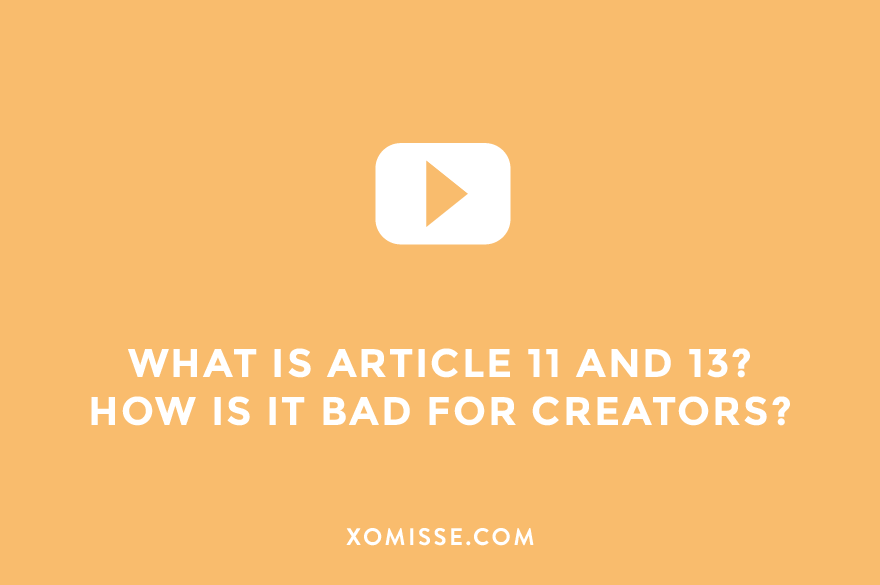If you’ve heard anything about Article 11 and 13 over the past few months, I’m sure you have the opinion that it’s a bad thing.
The majority of posts you read online will make you believe that the new legislation is bad for users, creators, publishers and online platforms, making you jump on the #SaveOurInternet bandwagon.
But is this view just being pushed by the biggest companies who have the most to lose…
Update: The European Parliament has passed the Copyright Directive with the most controversial clauses Article 11 and Article 13 (renamed Article 17 in the most recent draft of the legislation) as discussed below remaining as is.
What is Article 11 and 13?
Article 11 and 13 are part of the EU’s new copyright directive, that places more responsibility on sites such as YouTube, Facebook and Twitter to make sure that copyrighted material isn’t being illegally shared on their platforms.
Article 11 grants news publishers copyright over headlines and news snippets, which would require aggregation platforms like Google News to pay media companies a “link tax” in order to share articles or use snippets of their articles on their platforms.
Article 13 requires platforms that depend on user-generated content, like YouTube, to scan or “filter” uploads for intellectual-property violations before they occur.
So, why is the internet is freaking out about Article 13?
Article 13 aims to better protect creativity and find more effective ways for copyright holders to protect their content online. As an online creator, I support the goal of Article 13… but there are some worries about the current method.
According to YouTube, the proposed version of Article 13 would eliminate the existing notice-and-takedown system and instead make platforms (like YouTube, Facebook, Instagram and Soundcloud) liable for copyright infringement. In turn, these platforms would “be forced to” block the majority of uploads from Europe, as well as the views within Europe for existing uploaded content.
The existing notice-and-takedown system means those who upload content to the internet bear the principal responsibility for its legality, while platforms are responsible to take action to remove such content once its illegality has been brought to their attention.
All kinds of creators from musicans and artists to influencers and comedians as well as organisations such as WordPress, Medium, Internet Archive and Reddit are also against Article 13.
A group of the Internet’s original architects and pioneers sent a letter of concern to the President of the European Parliament. One of the people who signed this letter was Sir Tim Berners-Lee, the inventor of the World Wide Web. They say that Article 13 was well-intended and that there “should be a fair distribution of revenues from the online use of copyright works, that benefits creators, publishers, and platforms alike” but they don’t believe in the current proposal.
By requiring Internet platforms to perform automatic filtering all of the content that their users upload, Article 13 takes an unprecedented step towards the transformation of the Internet from an open platform for sharing and innovation, into a tool for the automated surveillance and control of its users. – A letter of concern
However Europe For Creators contradicts some of these claims stating that Article 13 only imposes obligations on online platforms, not the general public. They say that it makes it easier to create, post and share content online, giving the platforms the responsibility to get licenses and approval.
Though if platforms become directly liable for user uploaded content, the likelihood is that they will remove content based on their terms and conditions. Therefore restricting their platforms for users, creators and viewers. The European Digital Rights association agrees that Article 13 is bad for users, creators and competition.
What are your thoughts on this? Have you read into Article 13 at all?
